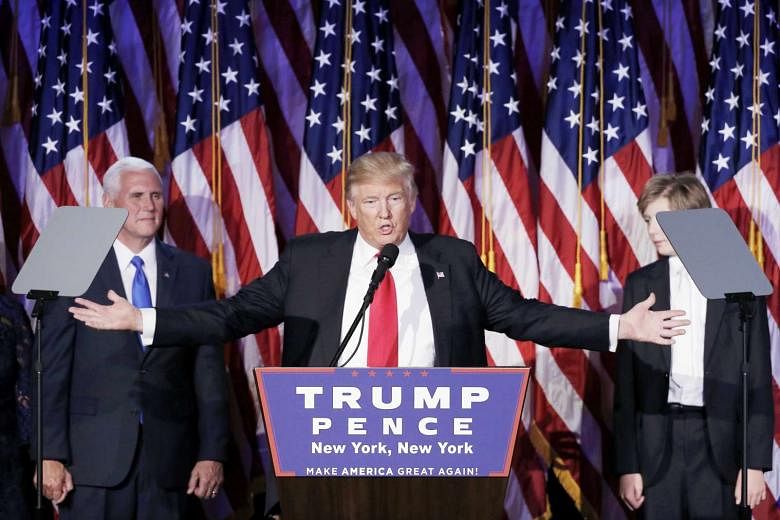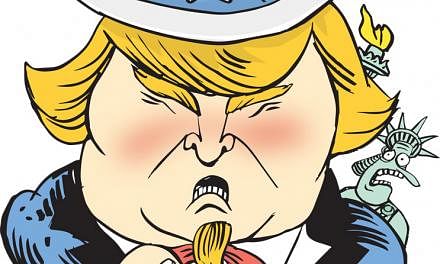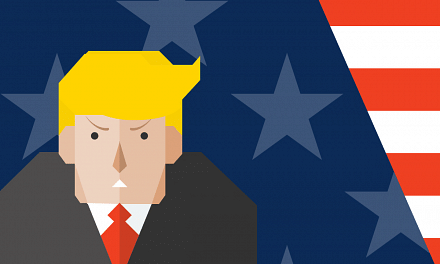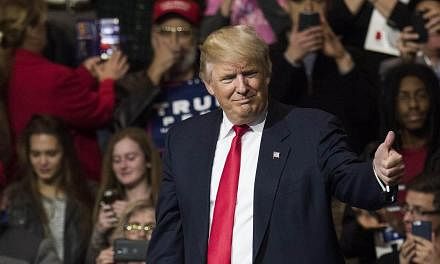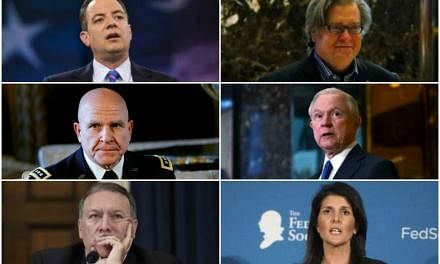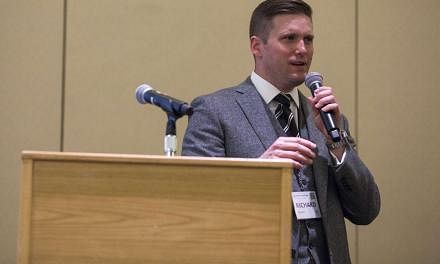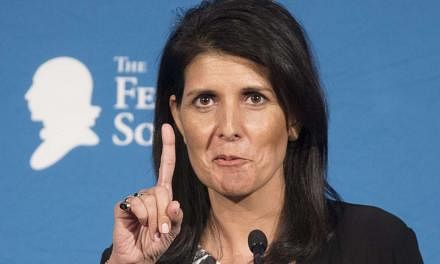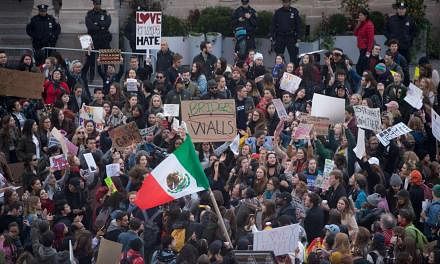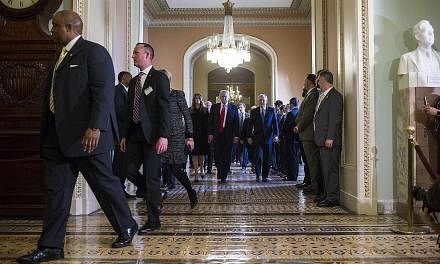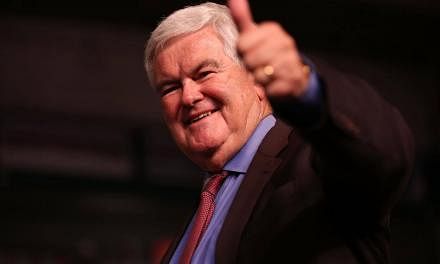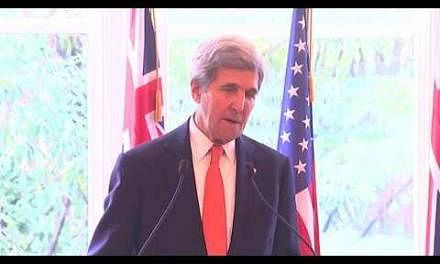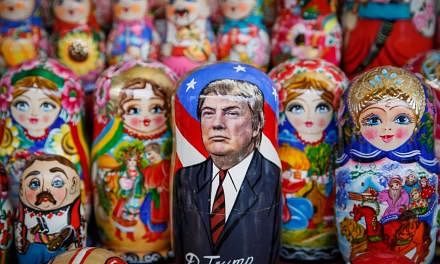I am one of millions of Republicans who voted for Mrs Hillary Clinton because much of what I heard Mr Donald J. Trump say on the campaign trail was nonsensical as well as hurtful to many Americans. But I take some comfort in thinking, while he will have to overcome many hurdles to be a good president, he can avoid being a bad president for two reasons.
First, he would not have got this far - he is the first non-politician to be elected president since Dwight Eisenhower - if he were lacking in intelligence.
Second, he very likely knows what the rest of us know: Most of the things he promised to do in order to get elected make no sense. And for that reason alone he may not do them. There is also the fact that even a Republican Congress may very well resist his policies, by, for instance, refusing to fund construction of the proposed wall bordering Mexico.
Let's start with Mr Trump's trade policy. He may not negotiate new trade agreements as president, but it is highly unlikely that he will back out of existing agreements. He probably knows enough economic history to want to avoid the disastrous protectionism of the 1930s that prolonged the Great Depression and doomed the Republican Party to oblivion for two decades.
China, Mexico and the Middle East are places where American businessmen, including Mr Trump himself, make money. He knows, as just about every economist knows, that global trade creates far more jobs than it destroys, and that growing the middle class while cutting off trade is impossible.

Same for immigration. Mr Trump pandered to nativist instincts, but he knows, as most American businessmen know, that immigration fuels our economy. The United States is the richest country in the world in large part because immigrants, including Mr Trump's own grandfather, came here to build businesses and work for businesses, including those owned by Mr Trump himself. Indeed his wife, our future First Lady, is herself a recent immigrant.
As for foreign policy, Mr Trump has already rejected the interventionist agenda of spreading "American values". That was one of the few areas where his campaign positions made sense.
He will hopefully not get the United States involved in new quagmires that cost money and lives. His willingness to work with important allies - such as Nato and Israel - has yet to be tested, and his confrontational talk is not encouraging. But he has also spoken of getting America's allies to share more of the burden of global security. In order to do that, he will have to work with them, just as any businessman would work with partners to get the job done.
In order to stay out of trouble in the Middle East and much of Asia, he will also have to be far more accommodating, and respectful, of the Muslim world than he has been on the campaign trail. Discerning between a vast majority of Muslims who want to live in peace, and a small minority who support extremism, is the work of diplomats, generals and presidents, even if opportunistic politicians can hurl bigoted insults at Muslims on the campaign trail.
The last good news from a Trump presidency is that it marks the decline of "religious conservatism" in American politics, which has done much damage to the Republican Party among well-educated voters, particularly women. Not only did Mr Trump soundly defeat the hero of religious conservatives, Mr Ted Cruz, at the polls; he also does not personally believe, or at least he certainly does not live by, religious conservatives' agenda.
The fact that religious conservatives backed Mr Trump in such large numbers shows how desperate they are. Many voters - including myself - attend church regularly but have no interest in using government to deny civil rights to gays and lesbians, control women's healthcare choices, or tell people where to go to the bathroom. Aspiring bathroom police hoping for jobs in the Trump administration will be disappointed; he has already said that people can use whatever bathroom they please in the Trump Tower.
Many of us who voted against Mr Trump because of what he said during the campaign - and his appeal to voters who have a very different vision for our country than we do - will have to wait and see.
Our hope is that he will run the country in the practical, if far from perfect, manner that he has run his businesses. (He will certainly need to have a better relationship with the nation's creditors than he has had with his own.)
We also hope that he will not use government to antagonise and discriminate against the very people, including Latinos, with whom he has made money for so many years. We hope that if anyone has been conned by Mr Trump, it is the people who deserved to be conned, because their own agenda is so antithetical to the national interest.
Mr Trump knows that America is already a great country and that, for better or worse, we will survive his presidency. He just needs to forget what he said, and do what he knows are the right things to do.
NYTIMES
- The writer, a professor at the University of Minnesota Law School, was the chief White House ethics lawyer from 2005 to 2007.
